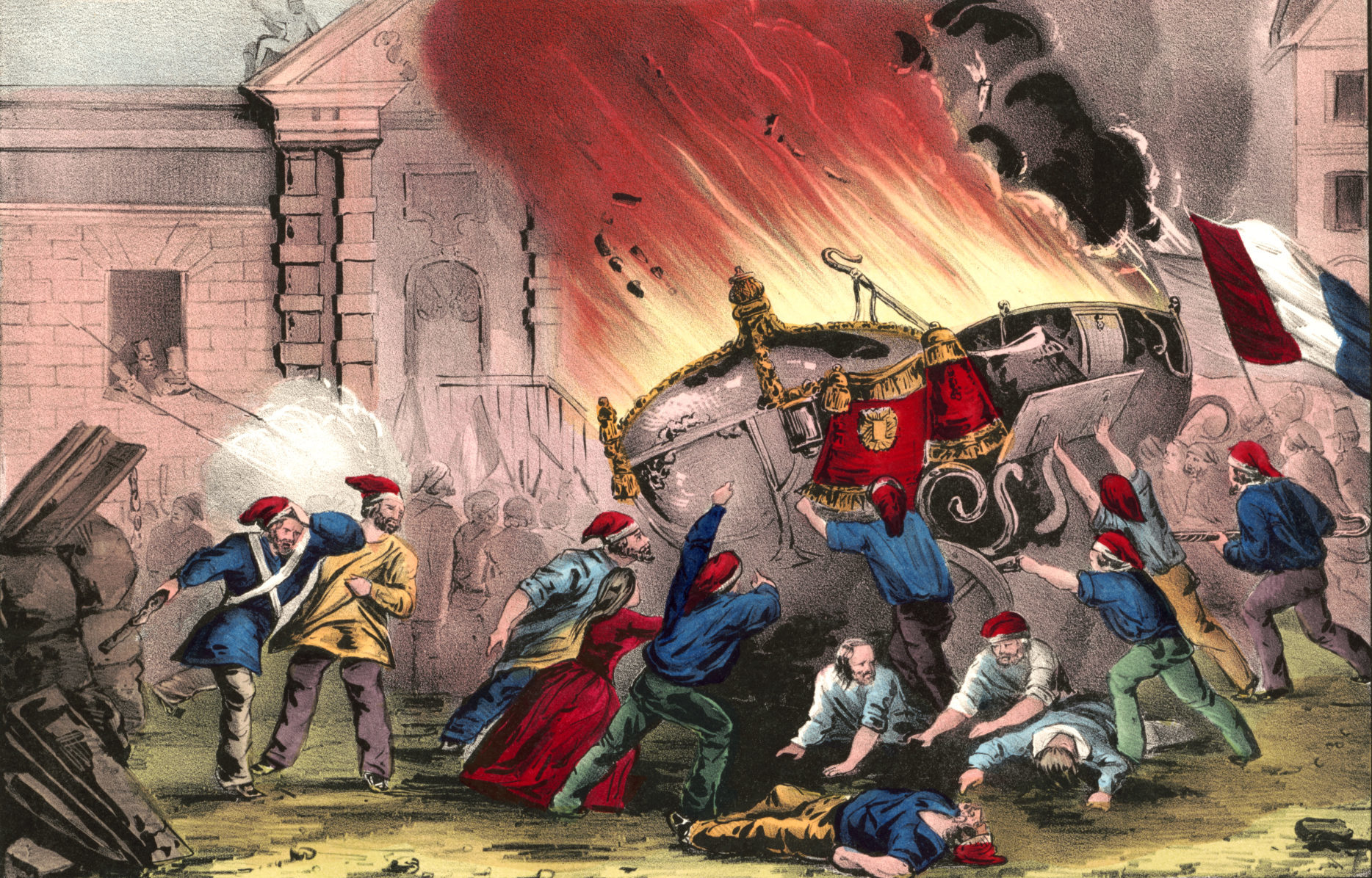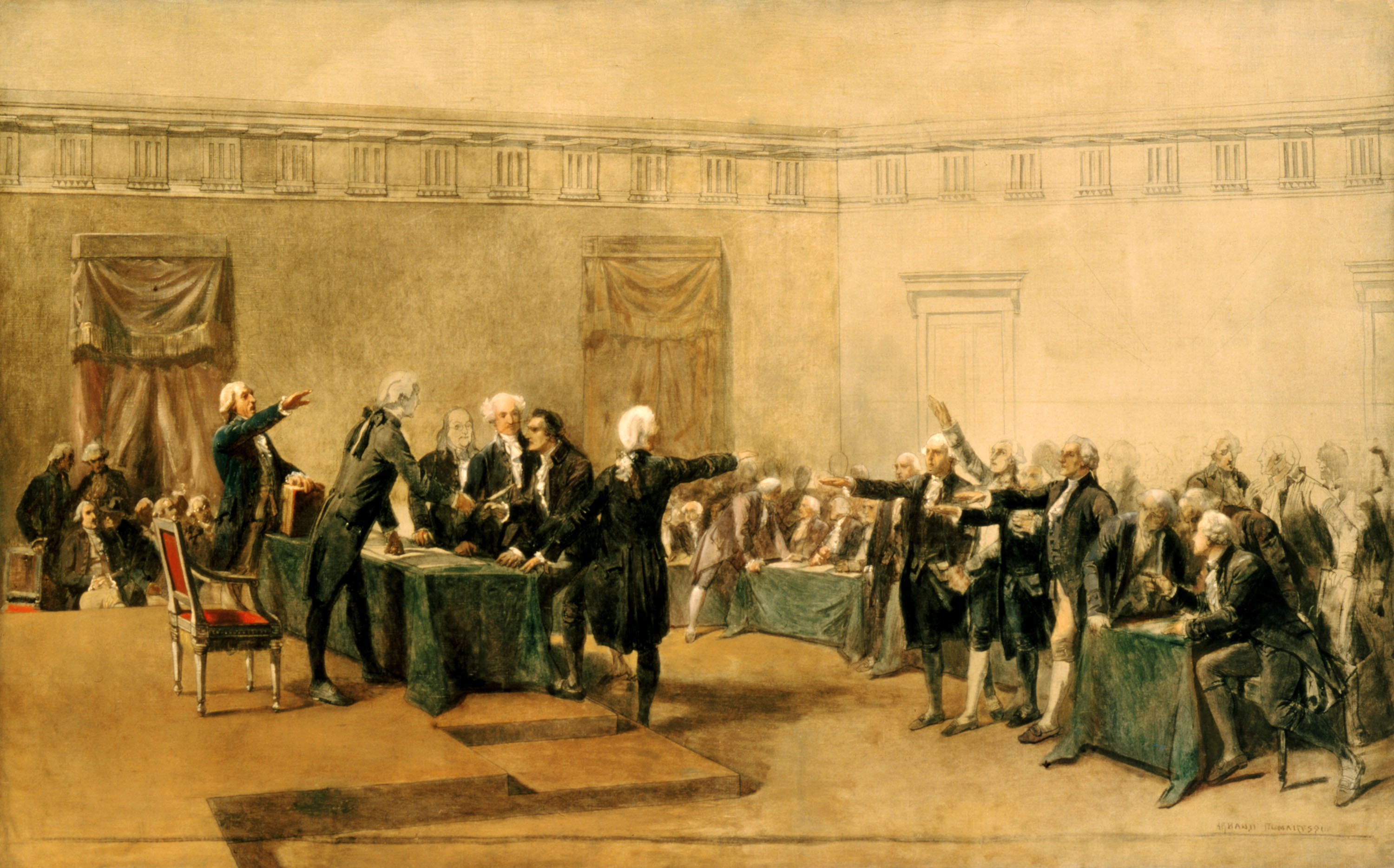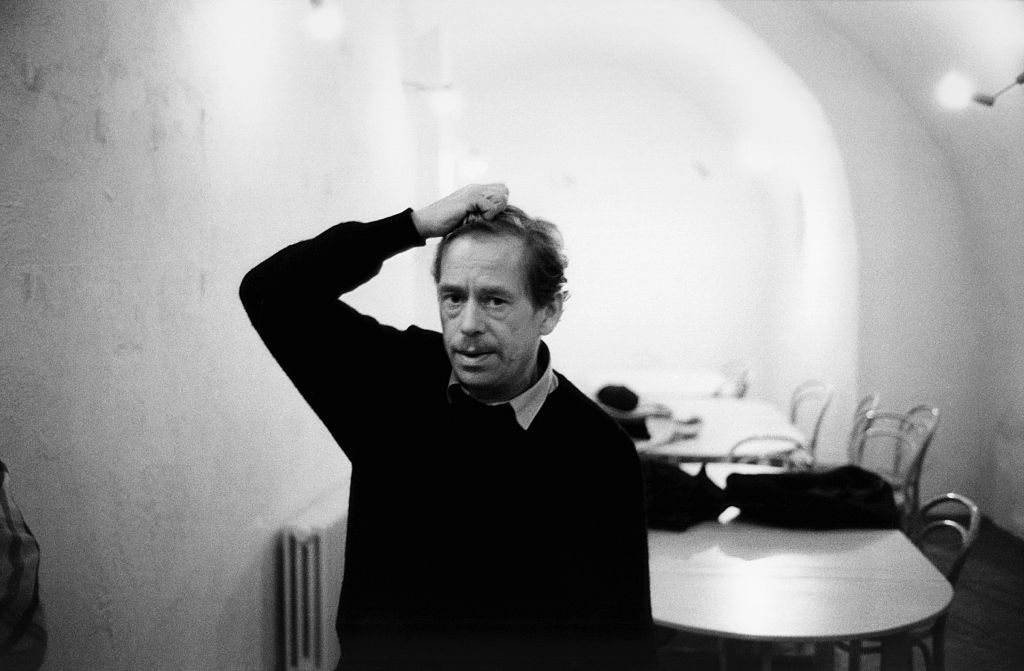The debate over capital punishment illustrates two irreconcilable views of the nation.
Rescuing Rights from Themselves

The civic framework of freedom.
What follows is an excerpt from Daniel J. Mahoney’s new book, Recovering Politics, Civilization, and the Soul: Essays on Pierre Manent and Roger Scruton.
Under the democratic dispensation, the human person is increasingly transformed into an “individual.” Human ties or bonds are fully legitimate only to the extent that they are freely chosen. At the time of the great democratic revolutions of the late eighteenth century, rights still had a recognizably political inscription. Rights belonged to citizens and were tied to the fulfillment of certain civic obligations.
But today, as Pierre Manent writes in A World beyond Politics?, rights have “an incontestably antipolitical accent.” Collective constraints tied to citizenship, such as compulsory military service, are no longer seen as a crucial means for supporting the political community that guarantees rights. Rather, such measures are said to restrict the free choice of the individual and are thus believed to be incompatible with individual freedom. Manent stresses the ambition of democratic ideology to “voluntarize” all human relations.
Not only are rights increasingly shorn of any real political inscription but consent, individual choice, comes to define “the majority of human actions” as Tocqueville put it in volume I of Democracy in America. The family, the nation, and the Church, every traditional source of authority and identification, are increasingly redefined in light of the categorical imperative of individual choice.
The law no longer recognizes the father as the head of the family. Children are increasingly understood to be equal, at least in principle, to their parents The contemporary democratic family strives to be as egalitarian and antihierarchical as possible. Democratic nations find it increasingly difficult to require citizens to serve in the armed forces to ask of them the ultimate sacrifice. That task is left to volunteers who are supposed to risk death as a “professional hazard.” And religion has become increasingly therapeutic in character, more a question of personal identity and individual choice than a matter of obedience to divinely constituted authority. Democracy, shorn of the moderating effects of salutary tradition, turns the human world upside down.
Manent thus appears to sketch the outline of a tragedy. Democracy has a “nature” that will not rest until individualism reigns supreme in the social and political world. But this reading, true as far as it goes, risks missing the subtlety of Manent’s analysis. As the historian Mona Ozouf has written, Manent is not only a penetrating analyst of the atomizing effects of the democratic project, he is also a “natural friend of conciliation.” As Ozouf suggests, Manent wishes to reconcile the “nature” and “art” of democracy with each other. If Manent’s writing as a whole tends to suggest that individualism is the effectual truth of democratic social life, A World beyond Politics? provides a salutary self-correction.
Without doubt, Manent sees an element of truth in the conservative, counterrevolutionary, and Marxist critiques of democratic individualism. He is the furthest thing from a complacent liberal. He is less impressed with the antiliberal attacks on the “egoism” of bourgeois society (in his view egoism is an eternal temptation of the human heart) than by their emphasis on the “separating” or “disassociative” propensities of a political order built upon the idea of human rights.
In a chapter entitled “Declaring the Rights of Man” Manent confronts the critique of democratic individualism leveled by Marx in his 1844 essay “On the Jewish Question” as well as the criticism of that critique by the contemporary French political philosopher Claude Lefort. Manent chooses to concentrate on the Marxist critique of liberalism precisely because Marx shares and even radicalizes the democratic project’s commitment to human emancipation. Manent has no illusions whatsoever about the utopianism of Marx’s dream of a postpolitical world without divisions or conflicts, but he is convinced that the Marxist critique of rights can contribute to clarifying the individualist logic of the democratic regime.
Choice and Obedience
A student of the great anti-communist thinker Raymond Aron, Manent argues in his 2018 book Natural Law and Human Rights that communism in every time and clime systematically violates the natural law. Its newfangled “ideals” twisted what is noble, just, and fair beyond all recognition. In addition, communist regimes so frustrated the “fundamental” wellsprings of human life (think of collectivization, periodic famines in all major communist regimes, and systematic consumer shortages) that the communist regime could never honor basic human needs. Rooted in the Marxism of Marx, communist regimes could not do justice to the elementary place of the useful, the pleasant, and the noble in any decent political order.
Yet for all that, Manent still maintains that something useful can be drawn from engagement with, and contestation of, the Marxist attack on “bourgeois” rights. Claude Lefort (1924-2010) is one of Manent’s principal interlocutors in A World beyond Politics?. Not as well-known as he should be in the United States, Lefort is one of the great political philosophers of the age and one of the deepest analysts of democracy and totalitarianism. An ex-Trotskyite, Lefort is one of the surest guides to the theory and practice of communism. Manent’s examination of the totalitarian temptation is heavily indebted to Lefort’s analysis of totalitarianism as a political response to democratic indetermination.
But Manent and Lefort part company on the question of rights. Manent is particularly critical of Lefort’s effort to affirm the essentially social character of the rights of man. In his essay “The Rights of Man and Politics,” found in his 1981 collection L’invention démocratique, Lefort takes Marx to task for not appreciating that “bourgeois” rights such as freedom of opinion presuppose communication and exchange—that they do not necessarily lead to the radical atomization of society, as Marx suggests in “On the Jewish Question.” Manent readily agrees that Marx overstated the atomizing effects of bourgeois freedom—democratic man is not simply a “monadic individual.”
But in Manent’s view, Lefort is too sanguine about “the connecting effects of the rights of man.” Lefort is confident that the new rights that have proliferated since the 1960s both free the individual from coercive restraints and bring people together in a community dedicated to new articulations of rights. But, in truth, those “new rights” have an almost exclusively corrosive or liberating effect, depending on one’s point of view. No-fault divorce, the right to abortion, children’s rights, and one could now add transgenderism and the pseudo-rights that flow from it, all follow from and reinforce an atomizing and individualistic logic, Manent argues. Whatever the limits of Marx’s positive human vision, whatever his responsibility for the rise of totalitarianism, there is something “profoundly true” in his analysis of modern liberty as the liberty of an “isolated monad.”
Despite their other differences, Marx’s analysis in this regard dovetails almost perfectly with Tocqueville’s description of “individualism.” However, Manent notes that Tocqueville’s description of individualism is more balanced and markedly less ideological than Marx’s. His luminous discussion of individualism captures a danger inherent in the nature of democracy. Democratic man is prone to a sentiment, as Tocqueville puts it, “that disposes each citizen to isolate himself from the mass of those like him and to withdraw to one side with his family and friends, so that after having thus created a little society for his own use, he willingly abandons society at large to itself.”
But Tocqueville does not ignore the enhanced appreciation of common humanity that accompanies the rise of democratic individualism. He does not argue for the moral superiority of aristocratic man to democratic man. Nor does he ignore the capacity of democratic citizens to correct the individualist propensities of democracy through the political art, through the exercise of democratic self-government. Tocqueville primarily had in mind the local self-government and “art of association” that he saw prodigiously at work in the United States. Manent believes that the nation served an analogous function in modern Europe: it gave political inscription to rights. It prevented democratic men from escaping from political life altogether. The decline of the vigor of the European nation-state reinforces the depoliticizing and atomizing “nature” of democracy. It confirms the worst fears of both the reactionary and the revolutionary critics of liberal democracy.
In A World beyond Politics?, Manent avoids conservative pessimism not only because of his attentiveness to the fecund art of democracy but also because he appreciates the ultimately unrealizable character of the autonomy project. In The City of Man and his 1995 essay “On Modern Individualism” Manent seemed to suggest that the tragic fate of modern man was to become more and more of an individual. In A World beyond Politics?, Manent qualifies the claim. He eloquently criticizes the tendency of modern philosophers, sociologists, and historians to exaggerate the heterogeneity of the old and the new, the democratic dispensation and what came before it. These contrasts, he writes, tend to be overdrawn. In a remarkably suggestive passage, Manent writes the following:
There is indeed a polarity between community and authority on one side, and individual and freedom on the other…. At the same time, each pole contains the other, normally subordinated but present and at work, and capable of seizing the upper hand. In the old order, community and membership was primary and by right, but it was unthinkable without the mediation of consent, which was generally presupposed. Obedience to the king presupposed an interior movement of allegiance, possibly even an explicit and formal oath. Marriage in Christian Europe had always rested in principle on consent, since consent constituted the very substance of the sacrament of marriage. And to take the most indicative example in this context, when the church took unto itself the right to impose the rule of faith, she still affirmed that the act of faith was valid, “meritorious,” only when it was freely and sincerely formed.
In the new democratic order, free personal searching is now a right, but it can lead to deep and lasting adherences, whether be it the formation of a couple or participation in a religious or other type of community.
Manent refuses to jettison either theoretical clarity about the nature of democracy or faith in the sempiternal prospects for human community and fidelity. The notion of pure freedom or consent is a chimera; even worse, it undermines the very possibility of commitment, the very desirability of keeping one’s promises. Sartrian freedom, celebrating indeterminate choice, demands the continuous re-creation of the world—it entails the dissolution of a recognizably human world. It presupposes a world without faith or hope or love. Because the democratic order allows one to choose freely, and even to choose what is genuinely choiceworthy, it is an order to which we owe some gratitude. However, the democratic order also entails a temptation; it tempts us to value choice above “the order of truth” or the nature of things. In any case, human beings are not free to choose between freedom and truth since both are constitutive of our nature. We are destined to live within the order of separations, but we cannot allow these separations to completely rule our minds and souls. We are obliged to live freely but in light of the truth. Such is the art of conciliation.
The American Mind presents a range of perspectives. Views are writers’ own and do not necessarily represent those of The Claremont Institute.
The American Mind is a publication of the Claremont Institute, a non-profit 501(c)(3) organization, dedicated to restoring the principles of the American Founding to their rightful, preeminent authority in our national life. Interested in supporting our work? Gifts to the Claremont Institute are tax-deductible.
How to keep modern liberalism from eating itself alive.
The indispensable political framework of rights and freedom.
True freedom means recognizing both human individuality and absolute truth.




